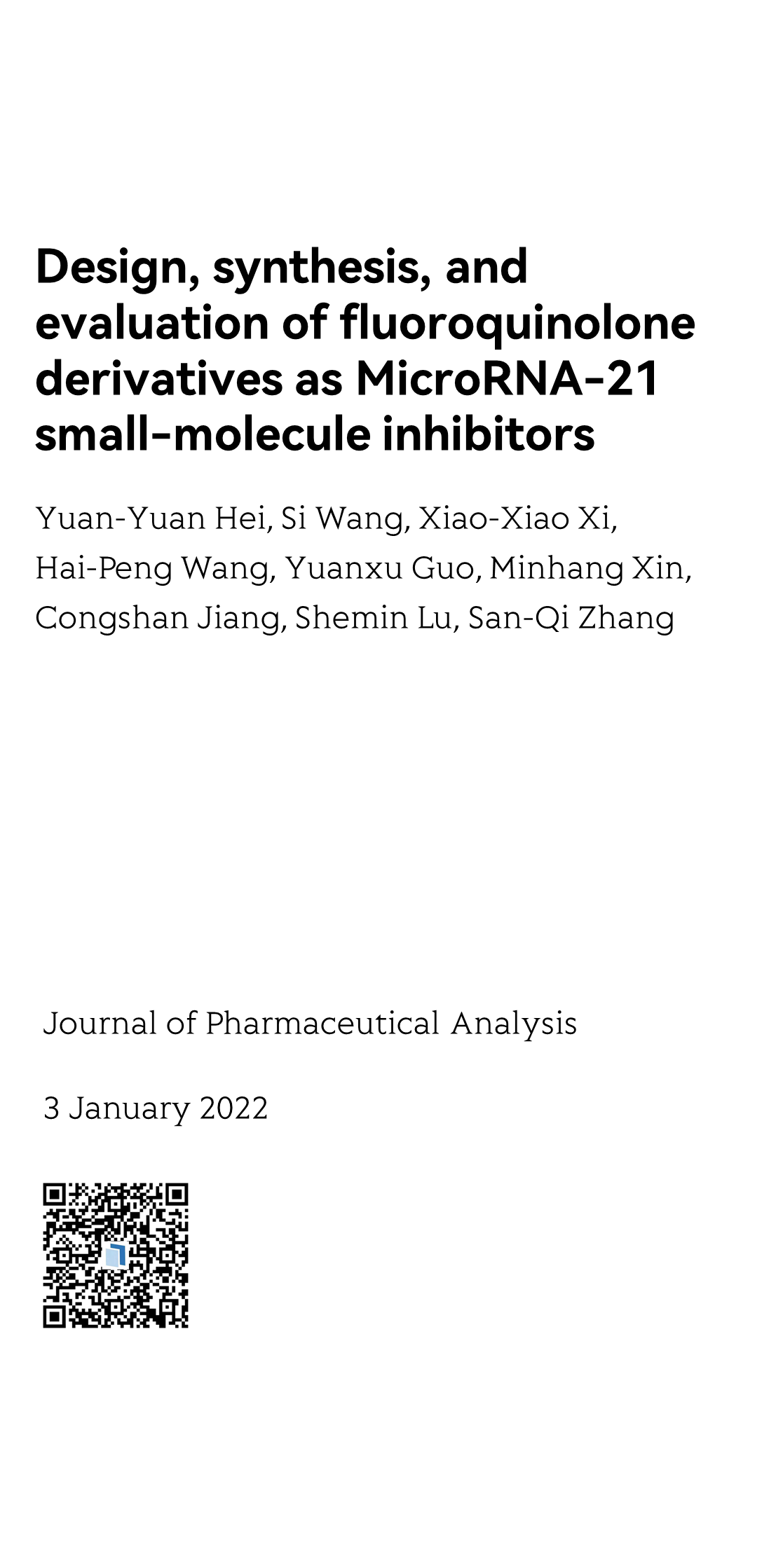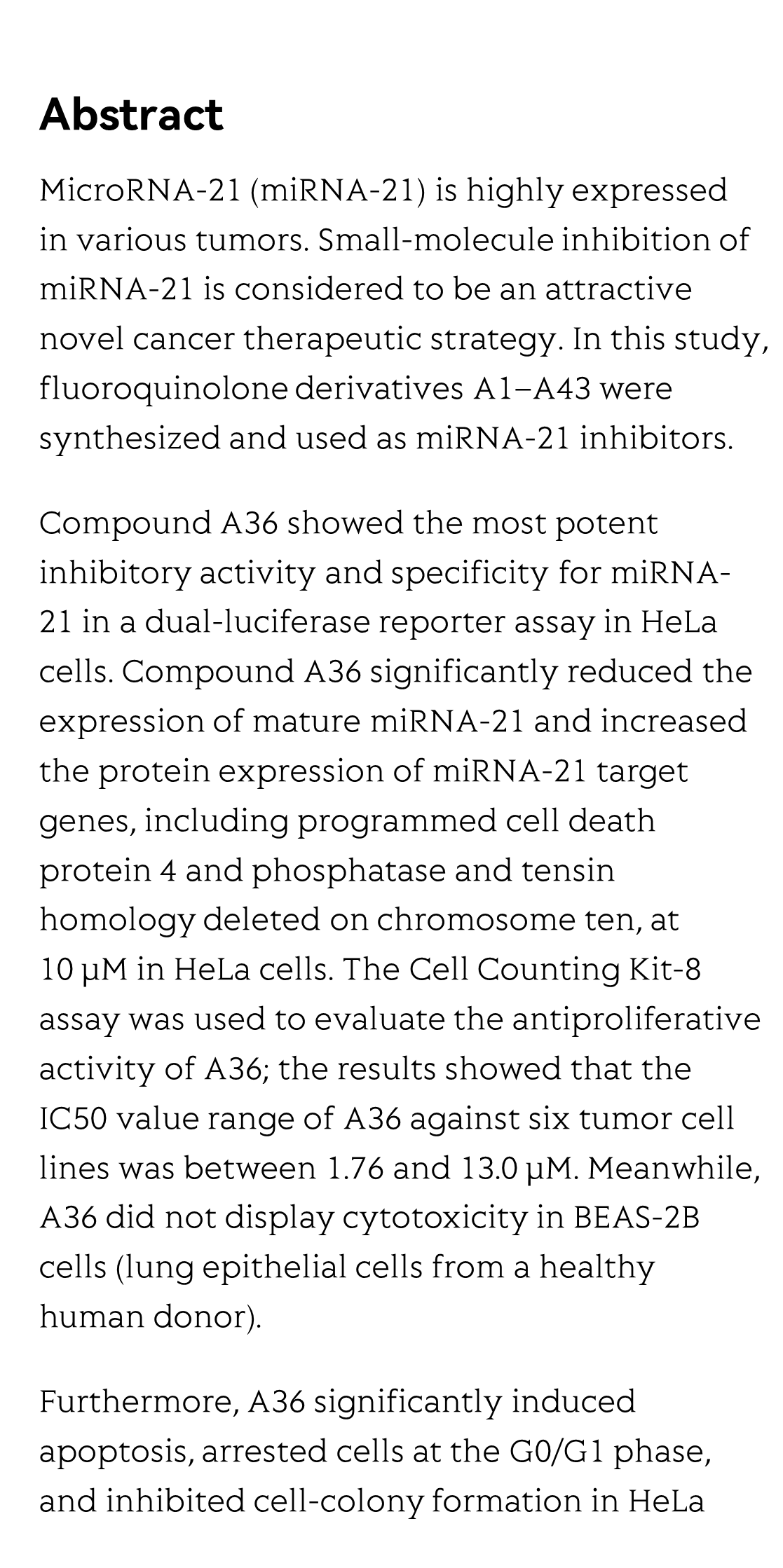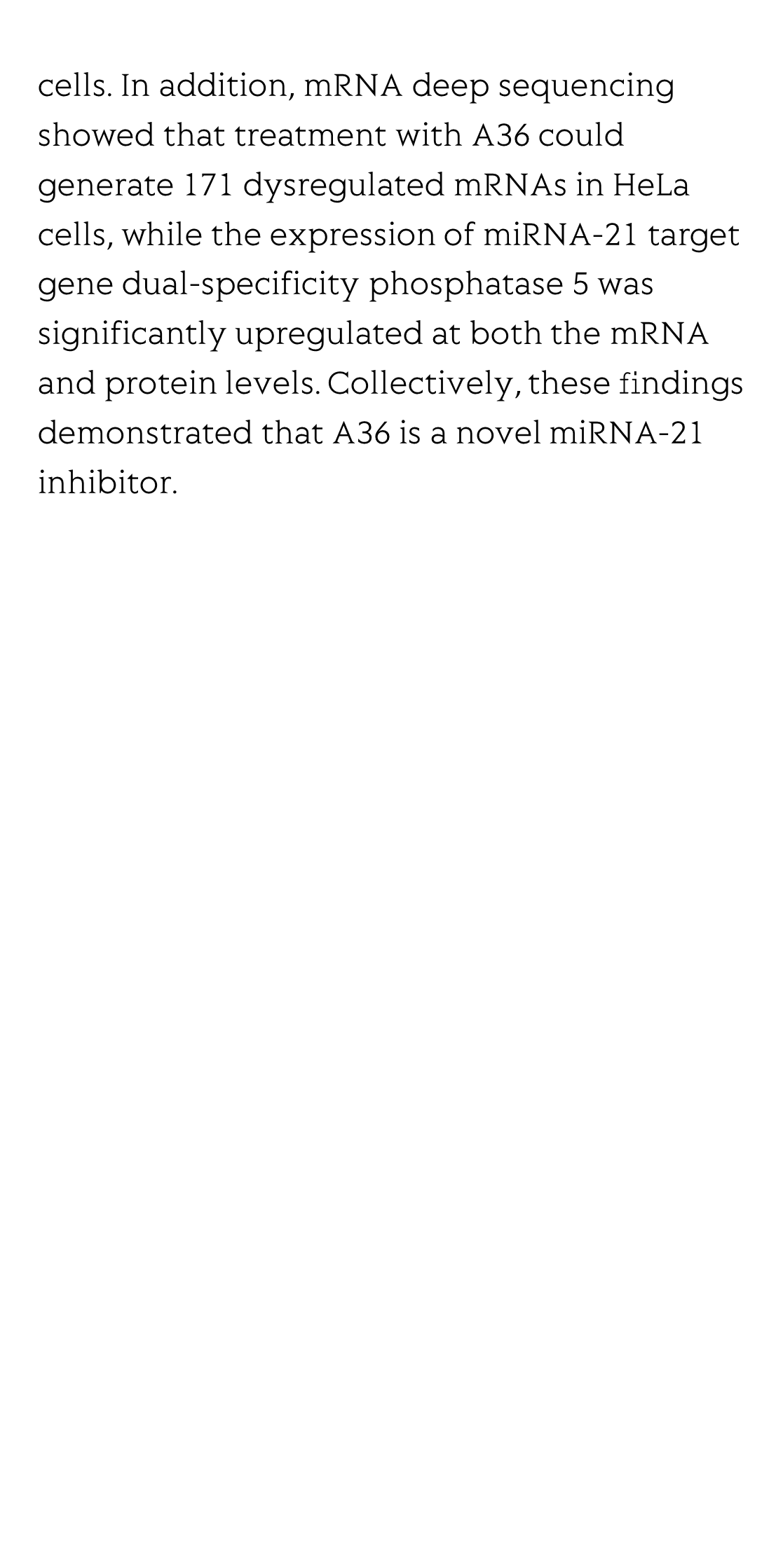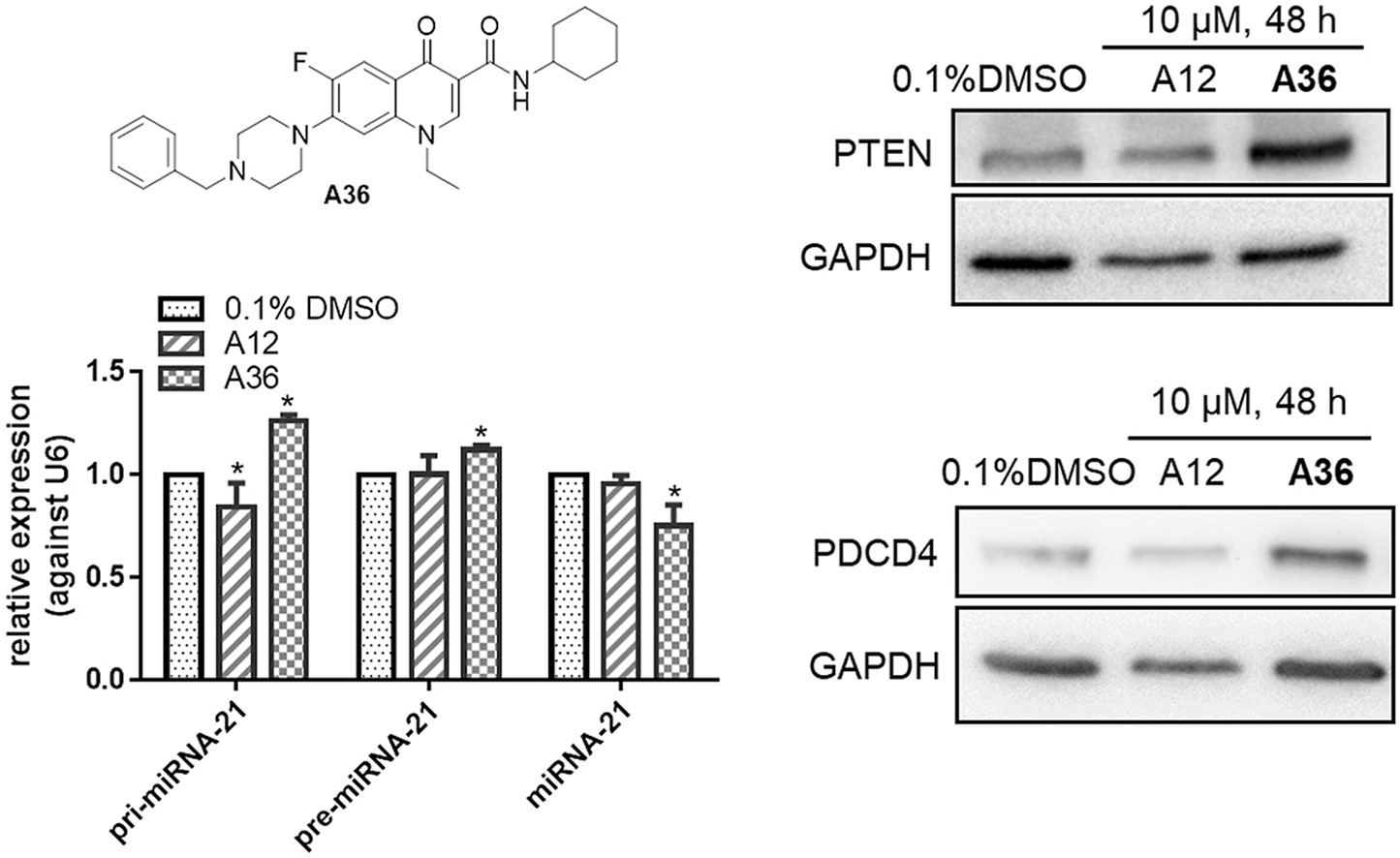(Peer-Reviewed) Design, synthesis, and evaluation of fluoroquinolone derivatives as MicroRNA-21 small-molecule inhibitors
Yuan-Yuan Hei 黑媛媛 ¹ ³, Si Wang ² ³, Xiao-Xiao Xi 席肖肖 ¹, Hai-Peng Wang 王海鹏 ⁴, Yuanxu Guo ² ³, Minhang Xin 辛敏行 ¹ ³, Congshan Jiang 蒋丛姗 ² ³, Shemin Lu 吕社民 ² ³, San-Qi Zhang 张三奇 ¹ ³
¹ Department of Medicinal Chemistry, School of Pharmacy, Xi'an Jiaotong University Health Science Center, Xi'an, 710061, China
中国 西安 西安交通大学医学部药学院药物化学系
² Institute of Molecular and Translational Medicine (IMTM), and Department of Biochemistry and Molecular Biology, School of Basic Medical Sciences, Xi'an Jiaotong University Health Science Center, Xi'an, 710061, China
中国 西安 西安交通大学医学部基础医学院 转化医学研究院 生物化学与分子生物学系
³ Key Laboratory of Environment and Genes Related to Diseases (Xi'an Jiaotong University), Ministry of Education, Xi'an, 710061, China
中国 西安 环境与疾病相关基因教育部重点实验室(西安交通大学)
⁴ Department of Medical Oncology, Shaanxi Provincial People's Hospital, Xi'an, 710068, China
中国 西安 陕西省人民医院肿瘤内科
Abstract
MicroRNA-21 (miRNA-21) is highly expressed in various tumors. Small-molecule inhibition of miRNA-21 is considered to be an attractive novel cancer therapeutic strategy. In this study, fluoroquinolone derivatives A1–A43 were synthesized and used as miRNA-21 inhibitors.
Compound A36 showed the most potent inhibitory activity and specificity for miRNA-21 in a dual-luciferase reporter assay in HeLa cells. Compound A36 significantly reduced the expression of mature miRNA-21 and increased the protein expression of miRNA-21 target genes, including programmed cell death protein 4 and phosphatase and tensin homology deleted on chromosome ten, at 10 μM in HeLa cells. The Cell Counting Kit-8 assay was used to evaluate the antiproliferative activity of A36; the results showed that the IC50 value range of A36 against six tumor cell lines was between 1.76 and 13.0 μM. Meanwhile, A36 did not display cytotoxicity in BEAS-2B cells (lung epithelial cells from a healthy human donor).
Furthermore, A36 significantly induced apoptosis, arrested cells at the G0/G1 phase, and inhibited cell-colony formation in HeLa cells. In addition, mRNA deep sequencing showed that treatment with A36 could generate 171 dysregulated mRNAs in HeLa cells, while the expression of miRNA-21 target gene dual-specificity phosphatase 5 was significantly upregulated at both the mRNA and protein levels. Collectively, these findings demonstrated that A36 is a novel miRNA-21 inhibitor.
Separation and identification of mixed signal for distributed acoustic sensor using deep learning
Huaxin Gu, Jingming Zhang, Xingwei Chen, Feihong Yu, Deyu Xu, Shuaiqi Liu, Weihao Lin, Xiaobing Shi, Zixing Huang, Xiongji Yang, Qingchang Hu, Liyang Shao
Opto-Electronic Advances
2025-11-25
A review on optical torques: from engineered light fields to objects
Tao He, Jingyao Zhang, Din Ping Tsai, Junxiao Zhou, Haiyang Huang, Weicheng Yi, Zeyong Wei Yan Zu, Qinghua Song, Zhanshan Wang, Cheng-Wei Qiu, Yuzhi Shi, Xinbin Cheng
Opto-Electronic Science
2025-11-25







